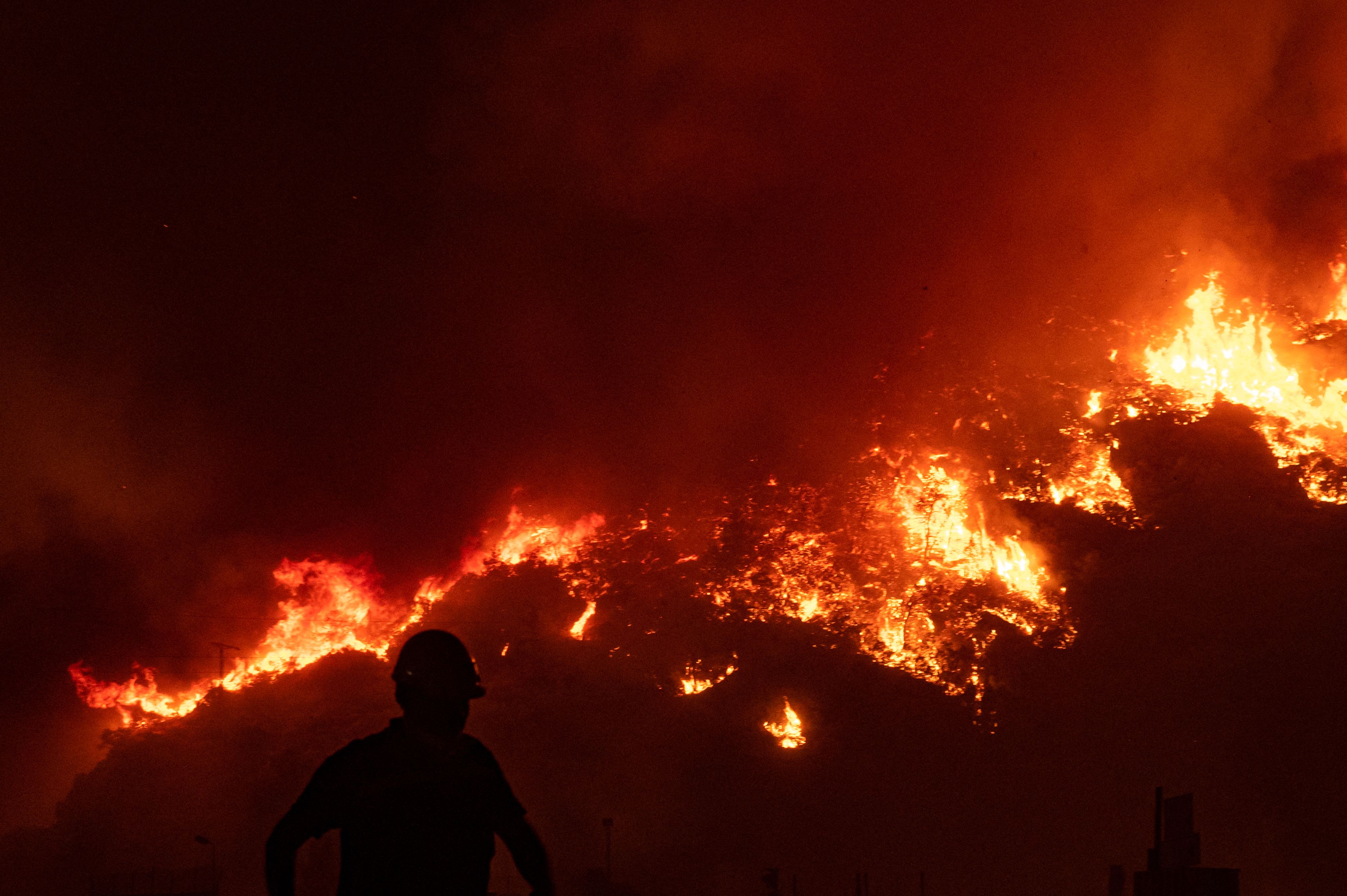Although Mediterranean littoral areas naturally experience seasonal wildfires, the steady progression of global climate change is leading to ever hotter average temperatures and drier conditions in the region, which have resulted in increasingly intense and unprecedentedly devastating blazes. According to the Intergovernmental Panel on Climate Change’s findings, wildfire risk across the Mediterranean region will rise in parallel with the overall degradation of the health of the local ecosystem.
MEI is pleased to convene a panel of experts to share their perspectives on how Mediterranean countries’ forest management strategies will need to evolve and incorporate climate change into their decision making, from wildlife-urban interfaces to forest and water management. In addition, the participating speakers will discuss other ways for Mediterranean states to cooperate in their efforts to protect local communities and natural environments from the worsening threat of climate change-fueled wildfires.
Speakers
İsmail Bekar
PhD student, ETH Zurich
Eduard Plana Bach
Forest policy and risk governance coordinator, Forest Science and Technology Centre of Catalonia (CTFC)
Dr. George Zittis
Associate research scientist, the Cyprus Institute
Gökçe Şencan, moderator
Policy researcher, Public Policy Institute of California
Five Key Takeaways
-
When the natural balance that fire and wildlife maintains is thrown off course by an outside force such as climate change, the ecosystem becomes increasingly in danger of collapsing: Fire plays a unique role in the Mediterranean basin’s ecosystem. Much of the plant and wildlife that thrive there have adapted to survive in a climate that has a steady rate of wildfires. With climate change as an added, outside force, thrown into the mix, the frequency and severity of these wildfires have risen to a point where they threaten the future of this ecosystem.
-
Climate change is now acting as the primary driver of wildfires not just in the Mediterranean, but around the globe: Climate change births a new reality with a greater capacity to create what is called extreme wildfire events. Wildfires are a part of nature, but with the advent of climate change, extreme wildfires harm and displace millions every year. This creates further vulnerabilities and damage to communities and areas that have adapted to living with normal wildfires.
-
It’s time for increased investment in prevention: Dr. George Zittis emphasized the necessity for governments to play an increased role in funding wildfire prevention. “The governments do not invest mostly in prevention. This is where we could do better, to invest more in prevention and to set policies that will help us deal with these challenges.” More money flowing to proper prevention efforts serves as a strong pillar of prevention along with thoughtful policy.
-
We have to prepare society for the advent of extraordinary wildfires caused by climate change: Edward Plana Bach highlighted that “overall, improving the ecological understanding of fire in our ecosystems may help to implement some policy measures. For instance, make people understand how rural activities are reducing fires.” Such adaptation can help save countless lives and maintain the preservation of critical ecosystems all around the world.
-
Technology can change the way we approach combating wildfires in a thoughtful way: George Zittis discussed the ways in which technology is helping to aid in the mitigation of extreme wildfires. “We now have very advanced remote sensing satellites, the use of UAVs… This type of low cost yet high efficiency solutions can play very important roles in the surveillance of forests and can help governments and stakeholders better protect wildlife and human lives.” The only obstacle in this is bureaucracy. Government agencies need to be convinced to allocate funds and resources to this type of solution.
Detailed speaker biographies
İsmail Bekar
İsmail Bekar is currently a PhD student at ETH Zürich and has been working on forest fires for 10 years. Early in his scientific career, he worked on projects related to the role of fire on seed germination. His recent work has mostly focused on fire modeling. Ismail studied the drivers of fire regimes in Turkey for his master’s thesis. For his PhD, he has focused on predicting fire ignition and large fires in Europe.
Eduard Plana Bach
Eduard Plana Blach is the head of Forest Policy and Risk Governance at the Forest Science and Technology Centre of Catalonia (CTFC) and founder member of Fire Ecology and Fire Management Pau Costa Alcubierre (PCF). His main areas of focus are integrated wildfire risk management, environmental governance and communication, and strategic forest planning, looking into the evolving cross-links between forest and society in a global change context. He has coordinated and contributed to several EU projects on the fields of Civil Protection and integrated fire management and conducted forestry and wildfires consultancies in Lebanon, Tunisia or Algeria.
Dr. George Zittis
Dr. Zittis is an Associate Research Scientist at the Climate and Atmosphere Research Center (CARE-C) of the Cyprus Institute, where he leads the Climate Downscaling and Extremes (ClimEx) research group. Dr Zittis is also an Assistant Instructor in the MSc Program in Environmental Sciences at CYI’s Graduate School. Previously, he has worked as a Post-Doctoral Fellow in the Max Planck Institute for Chemistry in Mainz, Germany, and the Energy, Environment and Water Research Center of the Cyprus Institute. His research interests include climate change and impacts, regional climate modeling, hydro-climatic extremes, land-atmosphere interactions, climate change education and communication. He is involved in several research networks such as MedECC, MedCLIVAR and MENA-CORDEX. Since 2020, he has been an Editorial Board Member of Springer’s Regional Environmental Change.
Gökçe Şencan
Gökçe Şencan is a research associate at the PPIC Water Policy Center. Her research interests include water markets and climate-water policy interactions. Prior to joining PPIC, she worked on several projects, including water purchasing opportunities for environmental flows from retiring coal-fired power plants and the financial benefits of reducing carbon dioxide emissions through land-use interventions in California.
Photo by YASIN AKGUL/AFP via Getty Images












